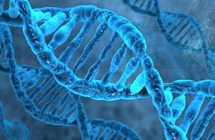美国首次对人类胚胎进行基因编辑,或能消除家族遗传病
|
The MIT Technology Review published on Wednesday a news report about the first-known experiment to create genetically modified human embryos in the United States using a gene-editing tool called CRISPR. Shoukhrat Mitalipov, director of the Oregon Health & Science University's Center for Embryonic Cell and Gene Therapy, reportedly led the new research. Mitalipov and the university would not confirm details of the research to cnn.
"Results of the peer-reviewed study are expected to be published soon in a scientific journal. No further information will be provided before then," according to an emailed statement from the university's press office. Another researcher cited in the MIT report, the Salk Institute's Jun Wu, did not reply to cnn's request for comment. Previously, Mitalipov and his colleagues reported the first success in cloning human stem cells in 2013, successfully reprogramming human skin cells back to their embryonic state. In 2007, a research team led by Mitalipov announced they created the first cloned monkey embryo and extracted stem cells from it. The MIT Technology Review reported that the researchers in Portland, Oregon, edited the DNA of a large number of one-cell embryos, specifically targeting genes associated with inherited diseases in those embryos. The MIT Technology Review could not determine which disease genes had been chosen for editing in the new research. Previously, scientists in China were the first in the world to reveal attempts to modify genes in human embryos using CRISPR. Three separate papers were published in scientific journals describing various studies in China on gene editing in human embryos. Yet the research has already generated attention and controversy. "This is pushing the research faster than I thought we would see," said Dana Carroll, professor of biochemistry at the University of Utah, "if the MIT Technology Review report rings true." Carroll has used CRISPR in his own studies, but was not involved in the new research. The controversy surrounding gene-editing in human embryos partly stems from concern that the changes CRISPR makes in DNA can be passed down to the offspring of those embryos later in life, from generation to generation. Down the line, that could possibly impact the genetic makeup of humans in erratic ways. "There is also considerable concern about off-target effects, such as making mutations at sites in the genome other than the intended target," said Carroll. In other words, an edit made in one area of DNA possibly could cause problems in another, as a ripple or domino effect, which could be concerning. Some CRISPR critics also have argued that gene-editing may give way to eugenics and to allowing embryos to be edited with certain features in order to develop so-called designer babies. Though, not all experts are too concerned. The enthusiasm surrounding gene-editing in human embryos partly stems from the promise CRISPR has shown in editing away and treating devastating intractable diseases. Earlier this year, the National Academies of Sciences, Engineering, and Medicine published a report on human genome editing, addressing potential applications of gene editing, including the possible prevention or treatment of disease. |









